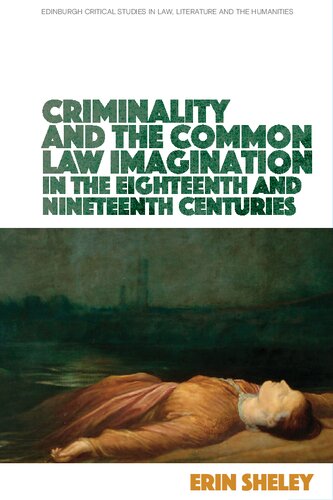

Most ebook files are in PDF format, so you can easily read them using various software such as Foxit Reader or directly on the Google Chrome browser.
Some ebook files are released by publishers in other formats such as .awz, .mobi, .epub, .fb2, etc. You may need to install specific software to read these formats on mobile/PC, such as Calibre.
Please read the tutorial at this link. https://ebooknice.com/page/post?id=faq
We offer FREE conversion to the popular formats you request; however, this may take some time. Therefore, right after payment, please email us, and we will try to provide the service as quickly as possible.
For some exceptional file formats or broken links (if any), please refrain from opening any disputes. Instead, email us first, and we will try to assist within a maximum of 6 hours.
EbookNice Team

Status:
Available4.5
27 reviewsBy accessing penal history through the mediator of individual memory authors can be seen to depict the cumulative dialogue between the English common law and its cultural representations across historical time. Offering legal readings of works by authors including Thomas Hardy, Charles Brockden Brown, Charles Dickens, Samuel Richardson, George MacDonald, Charles Kingsley, Alfred Tennyson, Charlotte Brontë, Robert Browning, Henry Fielding and Sir Walter Scott; this book explores this literary phenomenon and its legal significance during the eighteenth and nineteenth centuries. In doing so it argues that the importance of precedent in Anglo-American common law creates a unique discourse of historical legitimacy that shapes both the cultural and official conceptions of criminality itself during this period. Within a Foucauldian framework, the book illustrates how the cultural memory of crime and punishment contribute to the development of formal and informal penal institutions.
Key Features:
*Generates a new framework for analysing the relationship between individual and cultural narratives, literary texts, and the cumulative "truth" created by the common law
*Provides three case studies of adultery, child criminality, and rape testimony that demonstrate the impact of cultural narrative on legal development in the eighteenth and nineteenth centuries.
*Legal readings of works by authors including Thomas Hardy, Charles Brockden Brown, Charles Dickens, Samuel Richardson, George MacDonald, Charles Kingsley, Alfred Tennyson, Charlotte Brontë, Robert Browning, Henry Fielding, Sir Walter Scott
*Transformative readings of widely read works including Charles Brockden Brown’s Wieland and Ormond, Thomas Hardy’s Tess of the d’Urbervilles, Charles Kingsley’s The Water-Babies, Alfred Tennyson’s Idylls of the King, Charlotte Brontë’s Jayne Eyre, Henry Fielding’s The Modern Husband and Sir Walter Scott ‘s Heart of Midlothian